
Church and Culture


2025 LCWR Keynote Address

2025 LCWR Keynote Address - Spanish

2025 LCWR Keynote Address

2025 LCWR Presidential Address - Spanish

2025 LCWR Presidential Address
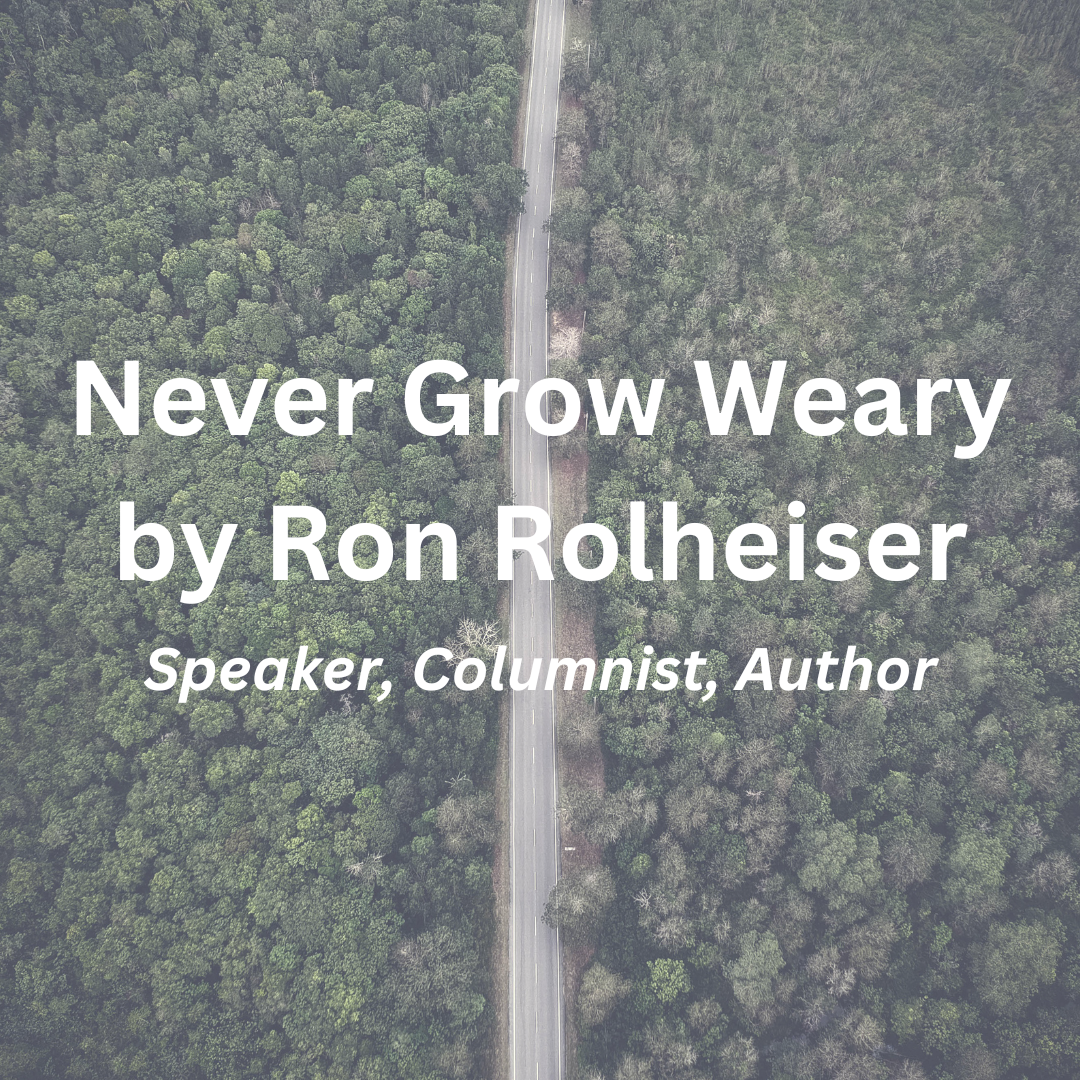
Never grow Weary
Ron Rolheiser blog on "Never Grow Weary" is a reflection on the Second Letter to the Thessalonians on never growing weary of doing what is right.
To view this reflection, please click here
InFormation 2018 No. 2 : Book Review, Building a Bridge, by Silas Henderson, SDS
InFormation Bulletins - InFormation 2018 No.2 Summer
" ... some critics attacked Martin for what they perceived to be a disregard for church teachings, while others opined that the book simply didn’t go far enough in naming and claiming a place within the Catholic Church or in speaking against out-of-date perspectives on sexuality and gender. The revised and expanded edition of Building a Bridge acknowledges these opposing viewpoints, but it goes a step further by including both Martin’s reflections on his conversations and encounters in the months following the publication of that first edition, as well as the voices of LGBT Catholics and their allies."
Click here to access the full article.
Members must be logged in to view this content
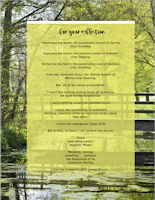
InFormation 2020 No. 1 : Nuns & Nones : Stories of Spiritual Formation for Today, by Katie Gordon
InFormation Bulletins - InFormation 2020 No.1 Spring
"When we start to realize the shared calls to action, it becomes incredibly powerful to imagine what it might mean to gather forces – across traditions and generations. There are bridges to be built that can transform how we exercise our collective power in response to the greatest issues of our time. And in the process, we too grow in the ways we understand and relate to one another, and to our world. It is evolutionary and revolutionary hand-in-hand; it is rooted in tradition while responding to the signs of the times. It is the intersection of the emerging reality of religious life and spirituality today, and the prophetic stance. It feels like, frankly, exactly the moment we are all here for."
Click here to access the full article.
Members must be logged in to view this content
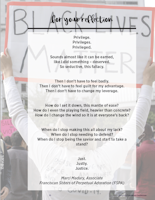
InFormation 2020 No. 2 : Courage for an Interim Time That Does Not Yet Know Its Name, by Bryan Massingale
InFormation Bulletins - InFormation 2020 No.2 Summer
"I offer 'the interim time' and 'a change of era' as apt descriptions of the season in which we live. I will sketch out several markers of the 'signs of the time,' that is, seismic developments or sites of disruption that illustrate how and where I see a 'change of eras' occurring, specifically looking at the phenomena of climate disruption, sexuality, and white nationalism as protean events that challenge established ways of thinking and being. I then will turn to the Christian tradition to retrieve its wisdom concerning courage as the grace and virtue needed as we live in the midst of this time of change and upheaval."
Click here to access the full article.
Members must be logged in to view this content
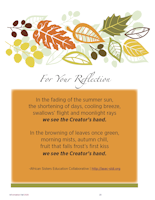
InFormation 2020 No. 3 : The Hope of Discernment and Decision Making in Uncertain Times, by Marian K. Diaz
InFormation Bulletins - InFormation 2020 No.3 Fall
"For me, the experience of these uncertain times should serve as a wake-up and a shake-up call to a new reality. I know that many hope that this pandemic is an interruption and that life will soon go back to 'normal.' I think that some people think the same thing about the protests and systemic racism or even climate change. But I hope that we listen to this time, sift through the different elements of this reality and choose the 'gold' that we want to carry forward with us into a new form of life."
Click here to access the full article.
Members must be logged in to view this content
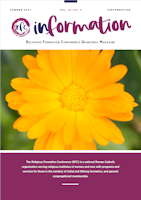
InFormation 2021 No. 2 : Book Review, Birth of a Movement : Black Lives Matter and the Catholic Church, by Julia Walsh, FSPA
InFormation Bulletins - InFormation 2021 No.2 Summer
"Segura’s book is a manifesto, a work of longform journalism and a feminist response to Catholic resistance to the Black Lives Matter movement. A Black Catholic immigrant from the Dominican Republican and resident of Bronx, New York, Segura’s perspective on the Catholic relationship to the Black Lives Matter movement is both personal and informative. She writes with vulnerability and prophetic imagination about how her life experiences uncovered a harsh truth: not all white Catholics value her life."
Click here to access the full article.
Members must be logged in to view this content

InFormation 2021 No. 2 : Book Review, Birth of a Movement : Black Lives Matter and the Catholic Church, by Julia Walsh, FSPA
InFormation Bulletins - InFormation 2021 No.2 Summer
"Segura’s book is a manifesto, a work of longform journalism and a feminist response to Catholic resistance to the Black Lives Matter movement. A Black Catholic immigrant from the Dominican Republican and resident of Bronx, New York, Segura’s perspective on the Catholic relationship to the Black Lives Matter movement is both personal and informative. She writes with vulnerability and prophetic imagination about how her life experiences uncovered a harsh truth: not all white Catholics value her life."
Click here to access the full article.
Members must be logged in to view this content

InFormation 2021 No. 2 : Hope Restored, by Mary Jane Lubinski, OP
InFormation Bulletins - InFormation 2021 No.2 Summer
"The invitation to serve at the border was the signpost that a curve lay ahead. A curve, once negotiated, that would set us on a path to see and experience religious life as inter-congregational, intergenerational and inter-cultural. The last several months have found religious women throughout the country living together, serving side by side, learning, growing, developing for the sake of the mission – a shared mission to those most in need."
Click here to access the full article.
Members must be logged in to view this content
InFormation 2021 No. 3 : Wake Up the World : Living Our Prophetic Witness Through the Eyes of the Poor, by Br. Philip Pinto, CFC
InFormation Bulletins - InFormation 2021 No.3 Fall
"Listen again to Jesus’ words and stories, pay attention to his actions. He is constantly mirroring how he sees God present in our world. And the God he reveals in all of this, is not the God we expect: a powerful, omnipresent, omniscient, Being living elsewhere. It is a God revealed as vulnerable, powerless, fully self-giving; a God of selfless loving. A God who looks at humanity without judging"
Click here to access the full article.
Members must be logged in to view this content
InFormation 2021 No. 4 : Yet, We Arise!, by Fr. Richard Hall, OMI
InFormation Bulletins - InFormation 2021 No.4 Winter
"Today the First Reading and the Gospel speak of widows and of generosity: Elijah, seeking a piece of cake, and the widow placing two small coins in the basket. I believe that all of us can give examples of generosity from these last two years of this pandemic, when people arose from their normal behavior and routine to help those in need."
Click here to access the full article.
Members must be logged in to view this content

WEBINAR | THAT YOUR JOY MAY BE FULL: THE EMOTIONAL JOURNEY TO THE FULLNESS OF LIFE
On the way to the deep and full joy that Jesus desires for us, we feel profound anxiety, deep rage, powerful shame, and intense grief in response to the ordinary experience of life that can challenge our faith, shake our hope, and limit our love. This webinar will help participants to deepen awareness of our emotional lives as invitations to transformation, growth, wisdom and peace all opening us to deeper faith and genuine hope. In addition to naming and removing the obstacles that block life giving emotions, this webinar will also discuss ways of expressing emotion that will deepen our intimacy with God and with others.
Ray Dlugos, OSA is an Augustinian friar from the Province of St. Thomas of Villanova in the eastern United States. Originally from the Philadelphia area, Ray was ordained a priest in 1983 and served in secondary education, parish, and vocation ministry before pursuing graduate studies in Counseling Psychology at the University of Albany, State University, New York. After earning his PhD in 1999, Ray joined the clinical staff at Southdown Institute in Aurora, Canada and was appointed Chief Executive Officer in 2003. In August of 2008, Ray became Vice President for Mission and Ministry at Merrimack College in North Andover, MA, a sponsored work of the Augustinians. He currently holds the position of Vice President for Mission and Student Affairs at Merrimack while also serving on the provincial Council of his community. Fr. Ray presented at the 2012 Transformation of Religious Life: An Action-Oriented Initiative together with Luisa Saffiotti, PhD. on the topic of “Engaging Resistance in the Service of Communal Discernment”.

WEBINAR | RELIGIOUS LIFE IN AN EVOLVING WORLD
Most of the theological and spiritual tradition that forms us as religious is based on a classical view of a static universe. As science reveals more about the world God created, we have the opportunity to deepen our understanding of God, ourselves, and the reality around us. The focus of this webinar is cosmology and how this new knowledge and consciousness informs the vowed life, lived in communion and for mission.
We will discuss insights from cosmology and its significance for Catholic faith, spirituality, and religious life. Topics will include an exploration of ecological themes in Christian scripture and tradition, the challenge and gift of evolution, the unique role of the human and reading creation as the first book of revelation.
Linda Gibler
Overwhelmed by the first Hubble Deep Field picture, Linda, a Dominican Sister of Houston, became enchanted with the magnificence of the Universe and intrigued by the image’s significance for a Catholic understanding of God. In 1999, she began formal study of cosmology at the California Institute of Integral Studies where she completed a MA then a PhD in Philosophy and Religion with an emphasis in Philosophy, Cosmology, and Consciousness Before her cosmic epiphany, Linda was the director of social ministry for a parish in Houston where she coordinated direct services, social outreach, and social justice programs and served on a hospital medical ethics board. Linda is the associate academic dean of the Oblate School of Theology in San Antonio and an adjunct professor for the Loyola Institute for Ministry. Her book, From the Beginning to Baptism: Scientific and Sacred Stories of Water, Oil, and Fire was published in March 2010 by Liturgical Press.

WEBINAR | LLAMADOS A SERVIR INTERCULTURALMENTE RETOS Y POSIBILIDADES DE LA TRANSICIÓN AL MINISTERIO EN LOS ESTADOS UNIDOS
La integración de la diversidad de la Iglesia Católica en los Estados Unidos es vital para la transición al ministerio de aquellos/as que están migrando de Latinoamérica y el Caribe. Este “webinar” contrastará las características históricas y culturales que dieron forma a la Iglesia de los Estados Unidos con la Iglesia de América Latina, subrayando las contribuciones que cada tradición trae al ministerio hoy. La meta será explorar las competencias interculturales que el ministerio en los Estados Unidos requiere de todos/as.
Hna. Teresa Maya, CCVI, Superiora General, Hermanas de la Caridad del Verbo Encarnado, San Antonio TX
Hna. Teresa Maya, CCVI, Superiora General, Hermanas de la Caridad del Verbo Encarnado, San Antonio TX. La Hermana Teresa Maya pertenece a la Congregación de las Hermanas de la Caridad del Verbo Encarnado desde 1994. Su experiencia ministerial es en el área de educación. Ha servido como maestra, profesora de historia y administradora. Tiene una pasión por la formación de agentes para la pastoral hispana en EUA. La Hermana Teresa curso el B.A. en la Universidad de Yale, el M.A. en el Graduate Theological Union en Berkeley y el Doctorado en El Colegio de México, en la Ciudad de México.

WEBINAR | PRAYER IN TIMES OF SUFFERING
Every person encounters the mystery of suffering in his or her life and in the lives of loved ones. Those of us who minister in the Church come face to face with this mystery often, as we are called to be present to those who suffer in different ways. Vowed religious are affected by the reality of suffering within religious community. This webinar will address the challenges of talking about God and talking to God in times of suffering. We will draw upon four dimensions from the Judeo-Christian tradition that can serve as resources for us in grappling with the mystery of suffering.
Robin Ryan, CP, PhD is a Passionist priest and theologian who serves as Associate Professor of Systematic Theology and Director of the Master of Arts in Theology Program at Catholic Theological Union. He received his Ph.D. in systematic theology from The Catholic University of America. He is the author of numerous articles and recordings on theological and spiritual topics. He edited and contributed to the book Catholics on Call: Discerning a Life of Service in the Church (Liturgical Press, 2010). He is the author of God and the Mystery of Human Suffering: A Theological Conversation Across the Ages (Paulist Press, 2011). He recorded a series of CDs on the topic of God and the Mystery of Human Suffering for Now You Know Media. He is the author of the forthcoming book Jesus and Salvation (Liturgical Press, April 2015). He is also a contributor to and English-language editor of the forthcoming Diccionario de la Pasión (Madrid, San Pablo).

WEBINAR | DIVINE MYSTERY AT THE HEART OF THE COSMOS
This webinar will weave the Universe Story and the Paschal Mystery using art, poetry and theological reflection. The Great Flaring Forth of the universe is an invitation to contemplate how Divine Mystery enfolds the cosmos. On Earth Day and during the Easter Season, participants in this webinar will ponder and celebrate the mysteries of Deep Incarnation, Kenosis, Deep Resurrection and the Cosmic Story.
Linda Neil, SCJ, is a member of the Albany Province of the Sisters of Saint Joseph of Carondolet. An experienced educator who holds Masters’ degrees in Earth Literacy and in Religious Studies, Linda has presented programs created to inform minds, engage hearts, fire passion for transformation, and celebrate our relationship with the Earth Community in a variety of retreat centers and other venues.

WEBINAR | KINDLING THE ENERGIES OF LOVE
We stand at an evolutionary juncture that is fostered by a deep yearning to be co-creators of the Universe. Led by the energies of that first primordial fire of the Divine, we are in communion with the Universe, Earth, and God. We strive, as sexual beings, to evolve and engage in life, seeking deeper understanding, interconnectivity and love. In this webinar, participants will explore how these energies within ourselves and beyond have evolved from that first fire that drove evolution. We will explore what God has intended for us all along.
“Some day after we have mastered the winds, the waves, the tides, and gravity, we will harness for God the energies of love, and then, for the second time in the history of the world, we will have discovered fire.” Pierre Teilhard de Chardin, Essay: The Evolution of Chastity, 1934.
Maco Cassetta, CND, is a member of the Congregation of Notre Dame, a psychotherapist, and spiritual mentor. Based in New York, she is Director of Formation for her congregation.

WEBINAR | ENCOUNTER OR ISOLATION – THE CHALLENGE OF POPE FRANCIS
In this complex time of ever-increasing diversity, we are continually faced with the possibilities of encounter and isolation. The natural tendency to relate only with people who share our cultural values and religious beliefs unconsciously reinforces ethnocentric isolationism, a room full of mirrors. Francis’ challenge to encounter the “other” – the one who looks, acts, and believes differently – moves us beyond our comfort zone to a greater self-awareness and the openness to see the world from another’s point of view. Intentional relationships with people of other races and cultures is the only way to diffuse fear, challenge stereotypes, and change prejudices. This webinar will examine the phases of this journey towards encounter and its implications for mission in today’s world, divided by walls of fear and mistrust. Join us in sharing the wisdom of our experiences and how we can together build bridges for respectful encounter and intercultural relationships.
Dr. Arturo Chávez is the President of MACC, the Mexican American Catholic College in San Antonio, Texas. Since 2007, Dr. Chávez has led the organization into its current transition from a Cultural Center to a Catholic College that offers B.A. and M.A. degrees in Pastoral Ministry. The unique degree plans are offered bilingually to meet the growing needs of Latinos for higher education, especially for service in faith communities. Prior to MACC, he worked in a variety of ministries – as a teacher, youth minister, a chaplain to the incarcerated, and a community organizer. He founded a nonprofit youth organization called JOVEN and was instrumental in establishing other faith-based partnerships to address the urgent needs of families who are poor and disenfranchised. Nationally recognized for his efforts to combat racism and poverty, President Obama appointed him to the White House Council on Faith-based partnerships. In 2010, Catholic Charities USA recognized him as “…a national champion of the poor” with the “Keep the Dream Alive Award” in honor of the Rev. Martin Luther King, Jr. The National Association on Lay Ministry recently bestowed the San Juan Diego Award to recognize his years of service to the Church. Dr. Chávez holds a Ph.D. in Religious and Theological Studies, from the University of Denver and the Iliff School of Theology, with a focus on the relationship between religion and social change.

WEBINAR | ENCUENTRO O AISLAMIENTO – EL RETO DEL PAPA FRANCISCO
En este tiempo complejo de creciente diversidad, nos enfrentamos continuamente con las posibilidades de encuentro o aislamiento. La tendencia natural de relacionarnos solo con la gente que comparte nuestros valores culturales y creencias religiosas refuerza inconscientemente el aislamiento etnocentrista, un cuarto lleno de espejos. El reto del Papa Francisco de encontrar al “otro” – el que ve, actúa y cree de manera diferente – nos mueve fuera de nuestra zona de confort a una mayor autoconciencia y apertura para ver el mundo desde el punto de vista del otro. Las relaciones intencionales con gente de otras razas y culturas es la única manera de disipar el miedo, retar los estereotipos y cambiar los prejuicios. Este webinar examinará las fases de este recorrido hacia el encuentro y sus implicaciones para la misión en el mundo de hoy, dividido por muros de miedo y desconfianza. Únase a nosotros a compartir la sabiduría de nuestras experiencias, y cómo todos juntos podemos construir puentes para un encuentro respetuoso y unas relaciones culturales.
El Dr. Arturo Chávez es el Presidente de MACC, Mexican American Catholic College en San Antonio, Texas. Desde el año 2007, el Dr. Chávez ha encabezado la organización en la transición de un Centro Cultural hacia un Colegio Católico que ofrece carreras de Licenciatura y Maestría en Ministerio Pastoral. Las carreras bilingües son únicas para atender las necesidades latentes de los latinos para su educación superior, especialmente para las comunidades en servicio de la fe. Antes de MACC, ha sido profesor, ministro de jóvenes, capellán para los encarcelados y un anfitrión en su comunidad. Fundó una organización juvenil sin fines no lucrativos llamada JOVEN y fue clave en establecer otras asociaciones basadas en la fe para abordar las necesidades urgentes de las familias pobres y privadas de sus derechos civiles. Reconocido nacionalmente por sus esfuerzos de combatir el racismo y la pobreza, el Presidente Obama lo apunto a un consejo de la casa blanca sobre asuntos de colaboración con organizaciones religiosas. Catholic Charities USA le reconoció como ´´…un campeón nacional de los pobres´´ con el ´´Keep the Dream Alive Award´´ en el año de 2010 en honor al Rev. Martin Luther King, Jr. El Dr. Chávez tiene un Doctorado en Estudios Religiosos y Teológicos de la Universidad de Denver y la Escuela de Teología Iliff, con un enfoque en la relación entre la religión y el cambio social.
